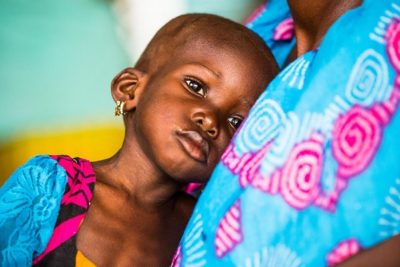
Two giant global health bodies, the World Health Organisation (WHO) and United Nations Children’s Fund (UNICEF) have called on African leaders to increase access to human papillomavirus (HPV) vaccination as well as reduce hunger among children, decrying highest burden of cervical cancer and malnutrition in the region.
They emphasised the need to secure the future of African girls, by protecting them from cervical cancer through HPV vaccination by age 15.
HPV is an infection that causes warts in various parts of the body, depending on the strain. It is the most common sexually transmitted infection (STI).
The health agencies raised the concerns as the global community commemorate Day of the African Child on Wednesday, noting that at least 33,000 children in inaccessible parts of Tigray, Ethiopia, are severely malnourished and face imminent death without immediate help.
Speaking on the world event, WHO’s Assistant Director General for Strategic Programmatic Priorities: Cervical Cancer Elimination, Dr Nono Simelela, said Africa has the highest burden of cervical cancer with the least number of girls vaccinated against HPV.
“To commemorate the Day of the African Child, let's uphold our promise to secure her future: it's time for access to HPV vaccination to ensure all girls are protected by age 15. Go for 90_70_90!
“Cervical cancer kills more women than any other cancer in Africa, but it can be prevented with a safe and effective vaccine. Let's get 90% of girls vaccinated against cervical cancer. Let's secure their future”, she urged
UNICEF Executive Director, Henrietta Fore, on the other hand bemoaned the degree of hunger among African children, especially those in hinder parts of Ethiopia, where there is acute famine and food insecurity.
Meanwhile, the National Nutrition and Health Survey 2018, shows Nigeria has the second highest burden of stunted children in the world, with a national prevalence rate of 32 percent of children under five. An estimated 2 million children in Nigeria suffer from severe acute malnutrition (SAM), but only two out of every 10 children affected is currently reached with treatment.
The survey revealed Nigerian northern states are the most affected by the two forms of malnutrition – stunting and wasting, while high rates of malnutrition pose significant public health and development challenges for the country. Stunting, in addition to an increased risk of death, is also linked to poor cognitive development, a lowered performance in education and low productivity in adulthood.
The UNICEF boss portrayed the scenario more vividly, saying there is urgent need for funding intervention from donor countries, as the food crisis is further deepened by deteriorated health systems orchestrated by the crisis in Ethiopia.
She said: “These children are among more than 2.2 million in northern Ethiopia who are acutely food insecure, including at least 140,000 in Tigray who are already facing famine-like conditions (IPC level 5).
“ In the last month alone, we have seen a four-fold increase in weekly admissions of children for treatment of severe acute malnutrition. UNICEF projects that 56,000 children under five in Tigray will need treatment this year for severe acute malnutrition – almost six times higher than the average annual caseload for the region.
“The rates of malnutrition among pregnant and breastfeeding women are consistently above 40 per cent, threatening the lives of newborn babies and their mothers.
“These developments could lead to outbreaks of disease, putting malnourished children at even greater risk of death. Sites hosting displaced children and families are especially vulnerable to disease transmission because of overcrowded and unsanitary conditions.
“The situation, while already a catastrophe, could deteriorate further as food insecurity is expected to worsen over the coming months – especially if crops cannot be planted.
“UNICEF is making every effort to prevent this from happening. Our aim is to reach every child across the region with critical health, nutrition, water, sanitation, education, and protection services. This includes working with our partners so that all severely malnourished children get lifesaving treatment before it is too late”, she hinted.













